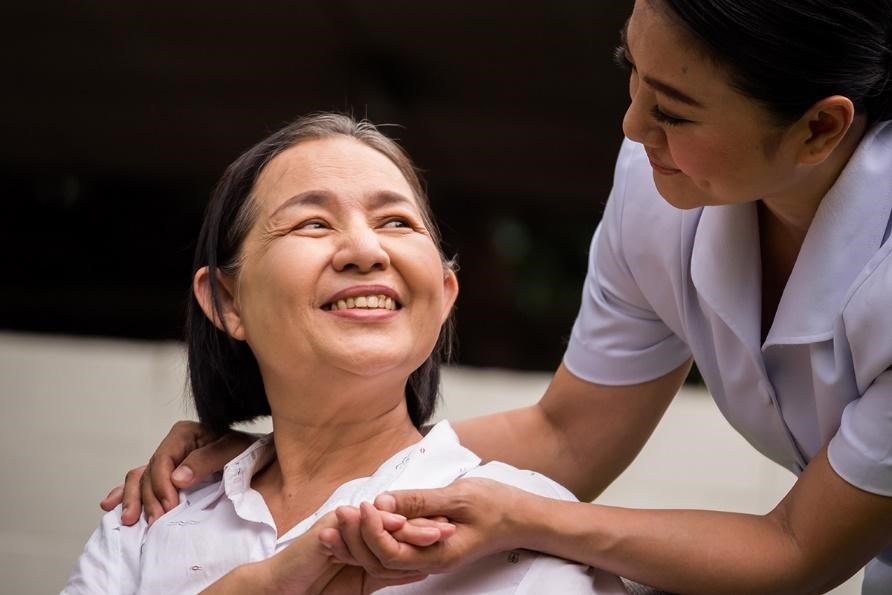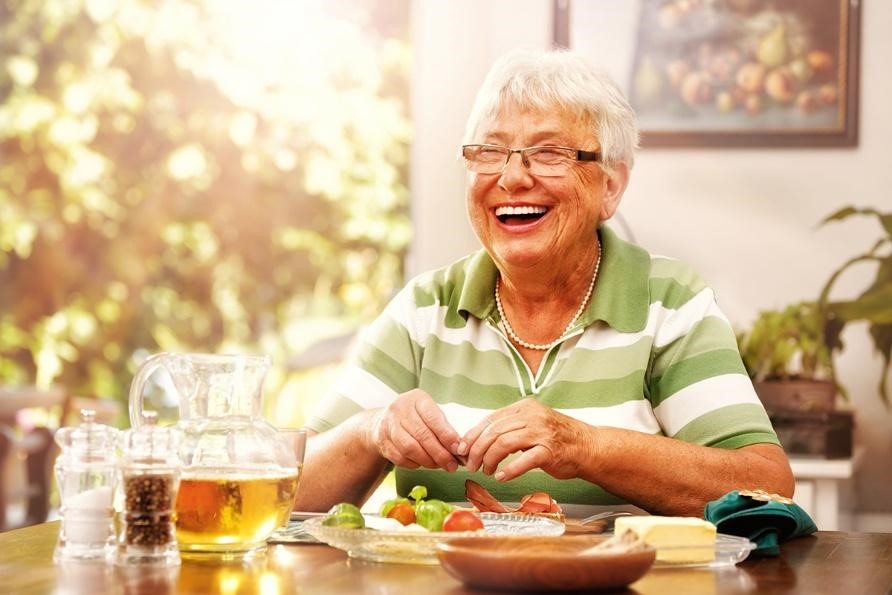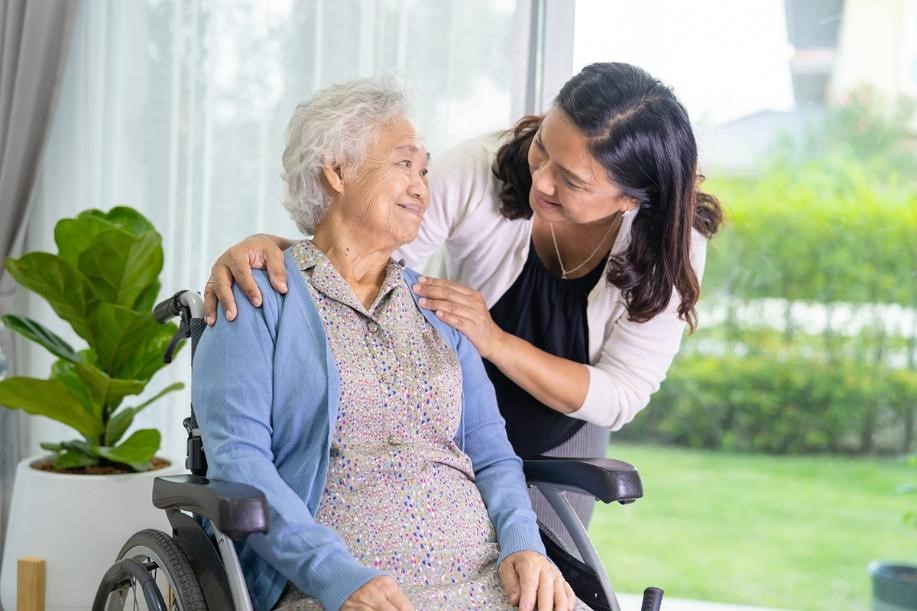
As we enter the heart of winter, cold conditions aren’t going away anytime soon.
For seniors living with arthritis or other illnesses, the bitter cold can exacerbate their condition. December, January and February weather can be unforgiving and prove limiting in the life of a senior in other ways too. Staying warm — and staying safe — are therefore two major priorities everyone within your loved one’s circle should pay close attention to during this season.
Extreme weather’s chilling effect on the body
Generally, seniors are more susceptible to colder weather than younger individuals. Even their skin, which is thinner, is more vulnerable.
When someone is cold, the heart will pump less effectively, constricting blood vessels and reducing body heat. Older people experience a reduction in elasticity of blood vessels and have thinning of fatty tissue in the skin, which helps preserve body heat. Cold temperatures can also cause gradual change to the body’s main arteries, impacting cardiovascular health over time.
The primary and immediate worry among older adults, however, is hypothermia. This scenario is not as far-fetched as it sounds. An hours-long power outage amid frigid temperatures, for example, could be a reason for significant concern.
Even an inadequately heated home can be dangerous. Several variables — an underperforming thermostat or poor home ventilation and insulation — can put your loved one in harm’s way. While 65 degrees might seem like a “reasonable temperature,” older individuals are an exception. According to the National Institutes of Health, prolonged exposures to such “reasonable temperatures” can lead to serious health complications like hypothermia in older folks.
Other causes that lower body temperatures
Cold is not the only component. Winter weather also can team up with other factors that lower body temperatures.
See these other factors to keep an eye on:
- Medications can drop body temperatures. Beta blockers, antipsychotics, antidepressants and sedatives are the main culprits.
- Does your loved one have a history of stroke? If so, it can be another risk factor. The same is true if they have Parkinson’s disease, sepsis, an underactive thyroid, or if they are malnourished or drink alcohol.
- Diabetes and hypertension also can complicate things. Due to poor circulation, older individuals are put at greater risk of experiencing the impacts of cold weather. For example, some illnesses will block them from even feeling the sensations of temperature change in their limbs and extremities, a dangerous situation to be in if overnight temperatures dip really low.
Tips for maintaining a safe home temperature
To address this matter and improve your loved one’s comfort and safety, there are several steps you can take:
- Check that the heating system and thermostat is in good working order. Make sure it is set to a comfortable temperature for them. If high utility bills are a concern, check in with your service provider for discounts.
- Does the home feel drafty? Then it’s time for a full inspection of the home’s doors, windows and other openings. Non-drafty rooms will better maintain temperatures and can reduce utility costs.
- Identify the home’s warmest room or area. Since not every room in the home is likely to be the same temperature as the rest, find out which room stays the warmest. This will let your loved one establish a home base where they know they will feel the most comfortable.
- Dress them in plenty of layers. Sometimes, a good strategy is to feel warm initially, but then they also will prepared for the colder weather later in the day. You can also help your loved one select articles of clothing that are easy to put on or take off in case they begin to sweat.
- Non-slip socks and slippers should be the season’s go-to accessories. Throw blankets should also always be at arm’s length. A weighted blanket can keep them warm and reduce anxiety — if they respond well to its heft.
- Plan for the worst-case scenario. A power outage can have devastating effects, especially if your loved one lives alone. That’s why it’s important to develop an evacuation plan in the event of a power outage. Also enlist family and friends to be on call when cold weather hits. A simple check-in can both help prevent a hazardous situation and lift your loved one’s spirits.
With simple steps and keen awareness of your loved one’s current health, the aging individual in your life can thrive despite the season’s cold weather. As Mother Nature’s thermostat continues to fall, remember that both cold weather and other critical factors could be at play. So, a comprehensive approach that accounts for both the weather conditions and any underlying health issues can help ensure the well-being and safety of your aging family member this winter season.
At Cherished Companions, our caregivers take health and safety seriously and would take pride in helping your loved one safely stay comfortable every winter.
For further questions, to request resources, or to inquire about having your loved one utilize our services, contact Cherished Companions today on our website or call (440) 484-5390!
+ Bonus Caregiver Questions To Ask Before You Choose An Agency

- Get recommendations. Talk to healthcare professionals in the field, your mom or dad’s doctor, and any friends or family members you know who have worked with a home care agency previously. Ask them which agencies they have had the best experience with and find out what they think about each provider you plan to contact. Look online for reviews and ratings. Do they have a lot of reviews? Look for independent review sites that have verified reviews such as bestofhomecare.com and look for agencies that have awards. See if they are accredited through the BBB and if they have an A+ rating.
- Check references. The agency should supply a list of references such as health agencies, rehabilitation facilities, social workers and other providers they have worked with. Call these references and ask them whether they regularly refer patients to the agency and what sort of feedback they have heard from clients.
- Consider the agency’s technology innovation. Does the agency have an online portal where you can view care plans and communicate with caregivers? Do they respond to communication quickly? Can you access information about your loved one via mobile? These are all useful ways to stay informed about your mom or dad’s care.
- Understand their process. Will you have the opportunity to interview caregivers? What happens if the caregiver isn’t a good fit? Will the same caregiver serve your loved one at each visit? How does the agency provide accountability for quality of service?
Download Your Guide
We understand the importance of finding the right caregiver for your family member. The questions included in this guide will help make this process as straightforward and informative as possible.
Give your mom or dad the gift of independence at home with quality, compassionate in-home care.
{{cta(‘004c753b-1102-4902-8dbd-81225424a3b3′,’justifycenter’)}}






